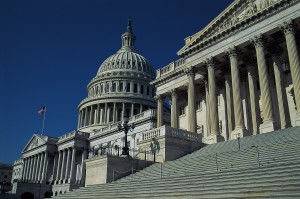 A mandated Securities Exchange Commission (SEC) whistleblower program, instituted as part of the Dodd-Frank Wall Street Reform Bill, reached its one year anniversary this week with a reported fund of $452 million set aside to pay out the first year’s rewards.
A mandated Securities Exchange Commission (SEC) whistleblower program, instituted as part of the Dodd-Frank Wall Street Reform Bill, reached its one year anniversary this week with a reported fund of $452 million set aside to pay out the first year’s rewards.
Whistleblowers may receive between 10% and 30% of the SEC’s recovery as an incentive for providing information in connection with potential securities fraud to the SEC. The program has already led to a veritable flood of tips from prospective relators on a daily basis, two to three of which on any given day are deemed worthy of further investigation.
The SEC program is similar in design to the federal False Claims Act (FCA), a whistleblower statute that has been on the books since 1863. Under the FCA, relators have standing to bring suit against individuals and corporations which have allegedly submitted false claims for payment to the government. It is also a violation of the FCA to submit a false claim in order to avoid payment of a liability owed to the government. Since 1986, the False Claims Act has undergone myriad amendments that, taken together, have worked to expand the protections available to whistleblowers and increase the number of valid claims under the statute. For example, the passage of the Fraud Enforcement and Recovery Act (FERA) in 2009, the Dodd-Frank Wall Street Reform Bill in 2010, and the Patient Protection and Affordable Care Act (PPACA) in 2010 all increased the scope of liability under the law. The 2009 changes to the law also included a broadening of the anti-retaliation provisions, expanding coverage to include not only employees, but also contractors and agents who make “lawful efforts to stop” violations of the FCA.
 Whistleblower Attorneys Blog
Whistleblower Attorneys Blog



